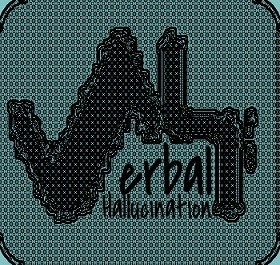
Stop us if you think that you’ve heard this one before – Verbal Hallucinations and Observing the 1980s
Not every OER or digital archive can boast its very own house band – after my last post’s discussion of the radical potential of Shipping (fantasy relationships between the members of boy band One Direction), it seems appropriate to allow Observing the 80s very own boyband Verbal Hallucination to speak for themselves:
As ‘history boys‘ from Sussex University, it is hardly surprising that our personal music tastes are drawn from a rich and varied archive of historically situated artists, commonly associated with a subcultural and radical past. Our own musical output is undeniably drawn from these influences, and it is with pride that we evoke how their past makes us feel and how it speaks to the present. But our intervention is not concerned with the authenticity of these influences, or in replicating them, but rather with what they say to and about us now. We regret that we will never know what it was like to have been at the Manchester Ritz in ’82 when The Smiths first played live, but we can listen to those who do know and compare and contrast those feelings with how the same songs make us feel, and what they say to us about our life. With this ethos as our musical foundation, we have often mined the Mass-Observation archive on numerous occasions for inspiration and illumination.
Having used the seemingly limitless resources of the continuing during our degrees, its potent influence overflowed into our musical ventures. Dorothy Sheridan so wonderfully compares the observers to a ‘kaleidoscope of voices across the country’ and we like to think of ourselves as additional shards to add further texture and timbre to that prism. The videos that we create to accompany our music are montages of historical imagery, cut up and repositioned to contextualise and demonstrate how those events are speaking to us. It has never been easier to access images, videos and documents from the past, and projects such as Observing the 1980s are opening access to some of the richest historical and cultural material that archives have to offer. Its boundaries should not be hindered by arguments over ‘representativeness’ and its limits will be determined by the imaginations of those who access it.
Our song ‘What Do You Know?’ was conceptualised from a number of different ideas. The open-ended questions that Mass-Observation has championed was one of them – soliciting its panel on a vast array of topics and asking them to impart with their understanding and knowledge about certain aspects of political, social and cultural life. Another reason for writing the song was to explore how and why people used historical events that they hadn’t experienced, to compare with seemingly unrelated events. One such example from the song being the ‘Blitz Spirit’ that people often refer to when something as banal as a power cut inconveniences them. During our time at Sussex a Conservative/ Liberal Democrat coalition took power during a recession, fees tripped and privatisation on campus divided students. The question of ‘authenticity’ was a binding thread that we were continually challenged with. ‘It’s nothing like as bad as..’ and ‘you wouldn’t understand because…’ became stifling motifs which we wanted to explore in the song.
Lyrics –
Our song ‘Postcards From The Verge’ steamed from our seminars during our second year module ‘Thatcher’s Britain‘. Understanding why the ‘personal’ became ‘political’ had a huge impact on our own political understanding of now. Understanding why it seemed like a challenging idea in the 1980s, when ‘family values’ were aggressively reasserted as a central pillar of a moral reaction, became the pivot of the song. The lines that we were encouraged to draw in Lucy Robinson’s seminars were completely removed from the top-down narratives that are so frequently evoked in contemporary 1980’s ‘retrospectives’. We wanted to explore these lines further in this song, to evaluate the implications of identity politics and how they were (and are) negotiated.